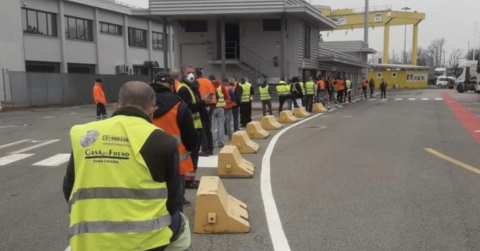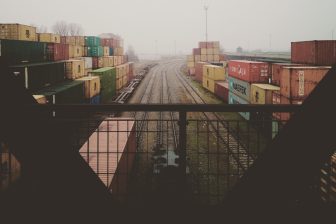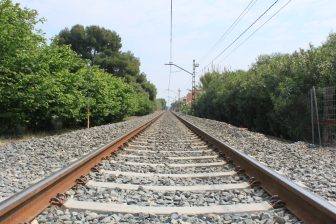
Here is what rail freight does in response to coronavirus
With the spread of the coronavirus in Europe, more and more intermodal operators are taking special measures in order to continue operations. Unlike passenger traffic, rail freight traffic is able to resume. Nevertheless, terminals are redesigned and workforce instructed to have as little social contact as possible. This is an update of the latest measures taken.
The President of the EU Commission, Ursula von der Leyen, announced on Monday 16 March that the European Union is set to shut down all Schengen area borders as an extreme measure to prevent the coronavirus from spreading further. It is expected that this measure will not apply to the movement of cargo, but this has yet to be formalised. Further updates will follow.
RailFreight.com organises a webinar on the continuance of intermodal transport during the coronavirus crisis. This webinar takes place on Friday 20 March. Registration is free of charge.
DB Cargo announced on Friday 13 March that all operations to international destinations run according to schedule, including those to and from Italy. Terminal handling is also taking place according to plan. It has however formed a crisis team and adopted special measures. Staff that is not required for the success of a train operation must stay at home.
The Italian Minister of Infrastructure and Transport, Paola de Micheli, on Friday 13 March send out a big “thank you” to all truck drivers and logistics operators that are working and struggling to keep things moving. “We will guarantee your safety”, she said. “We are working to build a system of procedures and ensure that you can work in maximum safety. In the next few hours, the companies you are working for will be in a position to guarantee this safety”, she added. Truck drivers are considered essential in the supply chain, as there is always a first and last mile. Without them, logistics would come to a complete standstill.
Rail Cargo Group said on Friday 13 March: “All freight trains run without restrictions according to the timetable. Depending on customer demand, capacity for intermodal and conventional goods transport by rail from/to Italy can be increased at any time.” According to Rail Cargo Group (RCG), its warehouses in Italy, in Desio and Santo Stino Livenza also operate as usual. At the same time, RCG takes all the possible measures to protect the health of its 8,500 employees.
TX Logistik said on Thursday 12 March: “With the coronavirus, cross-border freight transport has now become a challenge. Combined rail traffic is safe. Our trains run reliably and our European intermodal network is fully functional – including the routes to and from Italy. We have taken preventive action to reduce the risks. The entire TX Logistik team is totally committed every day to ensuring that the efficiency of your supply chains is preserved.”
Intermodal operators and lobby organisations collectively issued an Open Letter to Italian and European institutions on Wednesday 11 March. This includes a list of measures to safeguard intermodal transport in the wake of the coronavirus outbreak These measures can be summarised as ‘contactless terminal management’.
Hupac has taken measures to come as close as possible to ‘contactless terminals’ since the beginning of the month. “The objective is to reduce physical contacts between the people involved, by fully eliminating the need for contact or, where this is not possible, always maintaining the minimum recommended distance of 2 metre between them”, the company states.
Webinar
On Friday 20 March RailFreight.com organises a webinar, discussing best-practice in continuing service in a safe manner. Do you want to share your measures, ideas or knowledge? Send an email at news@railfreight.com.
Do you want to read more news about the coronavirus and the impact on rail freight? Have a look at our Coronavirus File.





